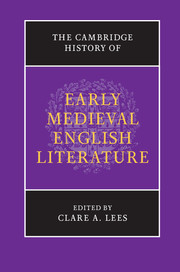Book contents
- Frontmatter
- Contents
- List of Illustrations
- List of Contributors
- Acknowledgements
- List of Abbreviations
- Introduction: literature in Britain and Ireland to 1150
- I WORD, SCRIPT AND IMAGE
- 1 Writing in Britain and Ireland, c. 400 to c. 800
- 2 The art of writing: scripts and scribal production
- 3 Art and writing: voice, image, object
- 4 Of Bede’s ‘five languages and four nations’: the earliest writing from Ireland, Scotland and Wales
- 5 Insular Latin literature to 900
- 6 Bede and the northern kingdoms
- II EARLY ENGLISH LITERATURE
- III LATIN LEARNING AND THE LITERARY VERNACULARS
- Bibliography
- Index of manuscripts
- Index
6 - Bede and the northern kingdoms
from I - WORD, SCRIPT AND IMAGE
Published online by Cambridge University Press: 05 February 2013
- Frontmatter
- Contents
- List of Illustrations
- List of Contributors
- Acknowledgements
- List of Abbreviations
- Introduction: literature in Britain and Ireland to 1150
- I WORD, SCRIPT AND IMAGE
- 1 Writing in Britain and Ireland, c. 400 to c. 800
- 2 The art of writing: scripts and scribal production
- 3 Art and writing: voice, image, object
- 4 Of Bede’s ‘five languages and four nations’: the earliest writing from Ireland, Scotland and Wales
- 5 Insular Latin literature to 900
- 6 Bede and the northern kingdoms
- II EARLY ENGLISH LITERATURE
- III LATIN LEARNING AND THE LITERARY VERNACULARS
- Bibliography
- Index of manuscripts
- Index
Summary
Brittania Oceani insula, cui quondam Albion nomen fuit, inter septentrionem et occidentem locata est, Germaniae Galliae Hispaniae, maximis Europae partibus, multo interuallo aduersa.
(HE, i.1, pp. 14–15)[Britain, once called Albion, is an island of the ocean and lies to the north-west, being opposite Germany, Gaul, and Spain, which form the greater part of Europe, though at a considerable distance from them.]
The account of Britain’s location with which Bede opens his Historia ecclesiastica gentis Anglorum [Ecclesiastical History of the English People] is conventionally read as highlighting the island’s place on the edge of the known world. But Bede is also connecting and comparing here. Just after the statement quoted above, Bede locates the closest point on the continent as Gessoriacum (Boulogne), which he describes as being ‘in the land of Morini’ (HE, I.1), about fifty miles across the Channel from Rutubi Portus or Reptacæster (Richborough). The relative unfamiliarity of these place and tribal names to a twenty-first-century reader highlights the differences between Bede’s map of Europe and our own.
From the perspective of salvation history, Bede has an interest in his location on the edge, because this gives Britain a special role in the fulfilment of the universal Christian mission. As writer and thinker, however, Bede also has an interest in his connections with the international Christian community. Thus, he places Britain opposite, and in direct relation to, Europe. The intellectual and textual community in which his and other early Anglo-Latin writings participate extends beyond the area Bede describes in the Historia and participates in what Michelle Brown calls ‘the Christian œcumen, encompassing the Italian, Byzantine, Coptic, Frankish, English, British, Pictish and Irish components of the universal Church’. Although Bede was once seen as a cloistered idealist, scholarly attitudes have changed; his writings are now seen not only as reflecting the local textual and cultural concerns of eighth-century Northumbria, but also as participating in this larger international dynamic.
- Type
- Chapter
- Information
- The Cambridge History of Early Medieval English Literature , pp. 158 - 182Publisher: Cambridge University PressPrint publication year: 2012
- 1
- Cited by



